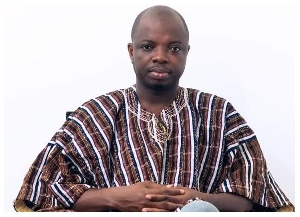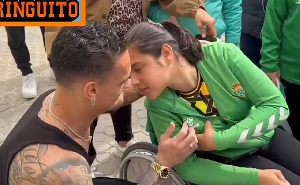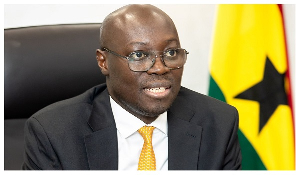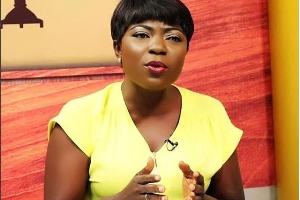By John Amponsah
This article seeks to place the spotlight squarely on one of the women who received the 2011 Nobel Peace Prize. She is the subject of a superb documentary entitled “Pray the Devil back to Hell” that reveals the story of the real grassroots movement organized by Christian and Moslem women of Liberia during the Second Liberia War, which eventually managed to bring the warring factions of Charles Taylor and Sekou Conneh (leader of LURD) to the negotiation table in 2003 and which ultimately led to the end of the war.
Today, the coordinator of this Women’s movement, Leymah Gbowee, is one of the three recipients of the 2011 Nobel Peace Prize. Current Liberian president Ellen Johnson Sirleaf is also a recipient of the 2011 prize, as well as Tawakel Karman, an activist from Yemen. The action group Leymah Gbowee set up starting from grassroots action in Liberia has now evolved into an NGO said to have its base in Accra, Ghana. It is called “Women, Peace and Security Network Africa.”
I highly recommend seeing this multi-award winning documentary if it is possible for you to do so, it is an eye opener and it puts into perspective the struggle these women had to go through to achieve peace. It also shows the high level political manoeuvring that occurred when Taylor and the rebels came to Ghana to have peace talks and how a war crimes tribunal in Sierra Leone indicted him while he was in our country. All the players in this drama are filmed in the documentary, no actors. Many live action scenes or war. We are shown scenes of real child soldiers, thuggish rebels and some very ‘severe’ ones of the adverse effects of war on destitute citizens. It is as close as some of us will get to seeing real war and its effects. Aside from the war footage and grassroots action, the documentary also shows talks and interviews of prominent African politicians such as Mbeki, Obasanjo, Kufuor, Abdulsalami Abubakar, Ibn Chambas and others who helped with the negotiations.
Back in 1990-1991, some of our family members returned from Liberia to live with us in Ghana so for me the war and its effects are something I have had in my consciousness for a while. My young cousin used to shout out “Charles Taylor bullet!” when he heard fire crackers go off during Christmas. I heard harrowing stories such as how some refugees fleeing Liberia for Ghana fell into the sea as they were getting onto the ships and not knowing how to swim, were left to die.
Seeing the images from this video certainly reminds me of strife that enters the lives of inhabitants of war torn areas in Africa. We may never get to see footage from the First Liberia War and indeed we may not need to. What is shown from the second conflict is already enough valuable material from which to learn lessons.
We should never allow our country and our people to descend into war in the way it has been in countries such as Liberia, Sierra Leone and even our own neighbours Cote d’Ivoire. We should continue to be advocates for peaceful coexistence of humans, not only in Ghana but elsewhere in Africa and even beyond where applicable. This is why as many Ghanaians as possible need to concern themselves with accounts of the dreadful effects of modern warfare on African societies in order to learn how and why we should never go down that path as a nation. This is also why we need to applaud the courageous efforts of groups such as the one Leymah Gbowee and her associates put together to cause angry fighting men to meet at the peace table. These women went “above and beyond and still some more” to do something that is very rare. I believe Leymah Gbowee shares the prize with all her fellow compatriots.
“Peace is a process, not an event. When the guns are put down, we must continue to build the peace” --comment made by one of the women activists in Leymah Gbowee’s group
After Charles Taylor left Liberia, these women returned and continued their movement to ensure that the transitional government stuck with the agreements made at the peace talks in Ghana. These women were amazing. Without them, the UN would not have been able to implement weapons disarmament by themselves. Without them, the political situation in Liberia will not be what it is today. For this and more, they deserve recognition.
Opinions of Sunday, 9 October 2011
Columnist: Amponsah, John


















